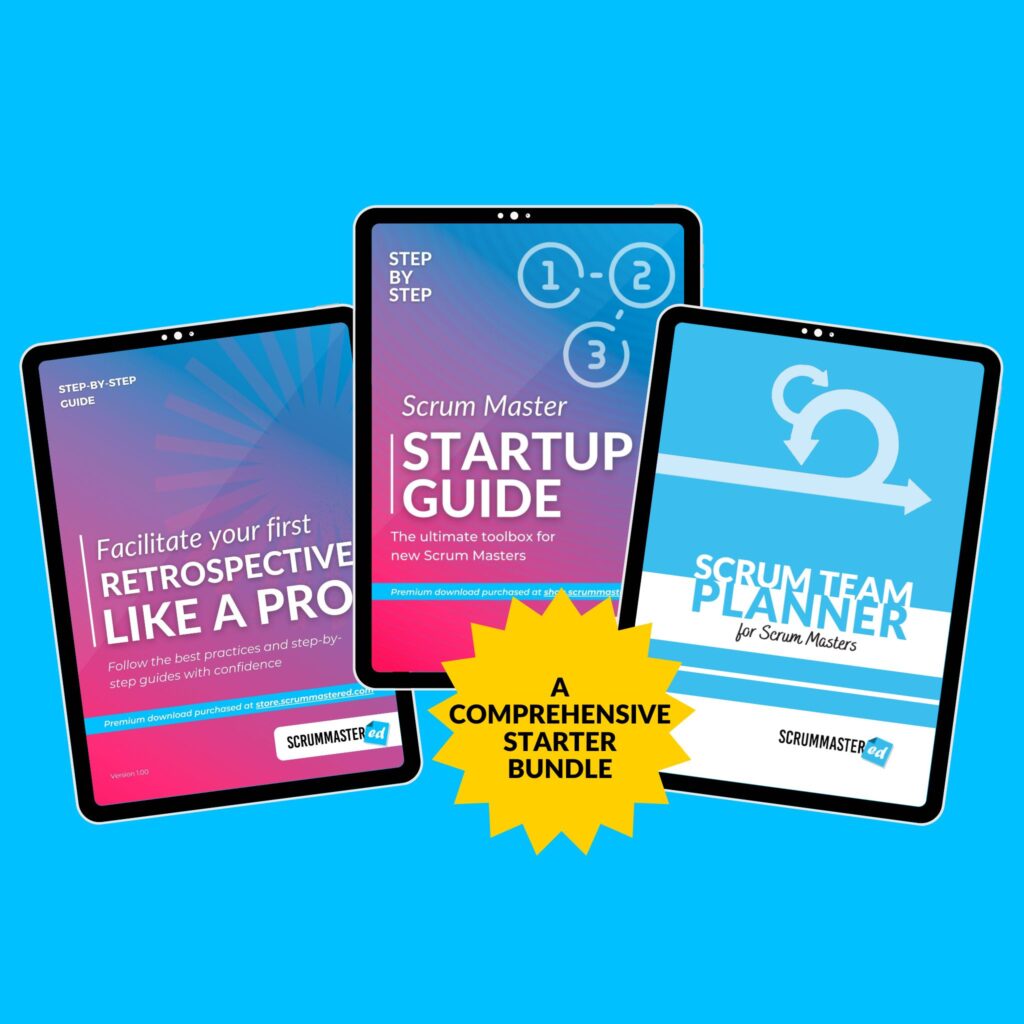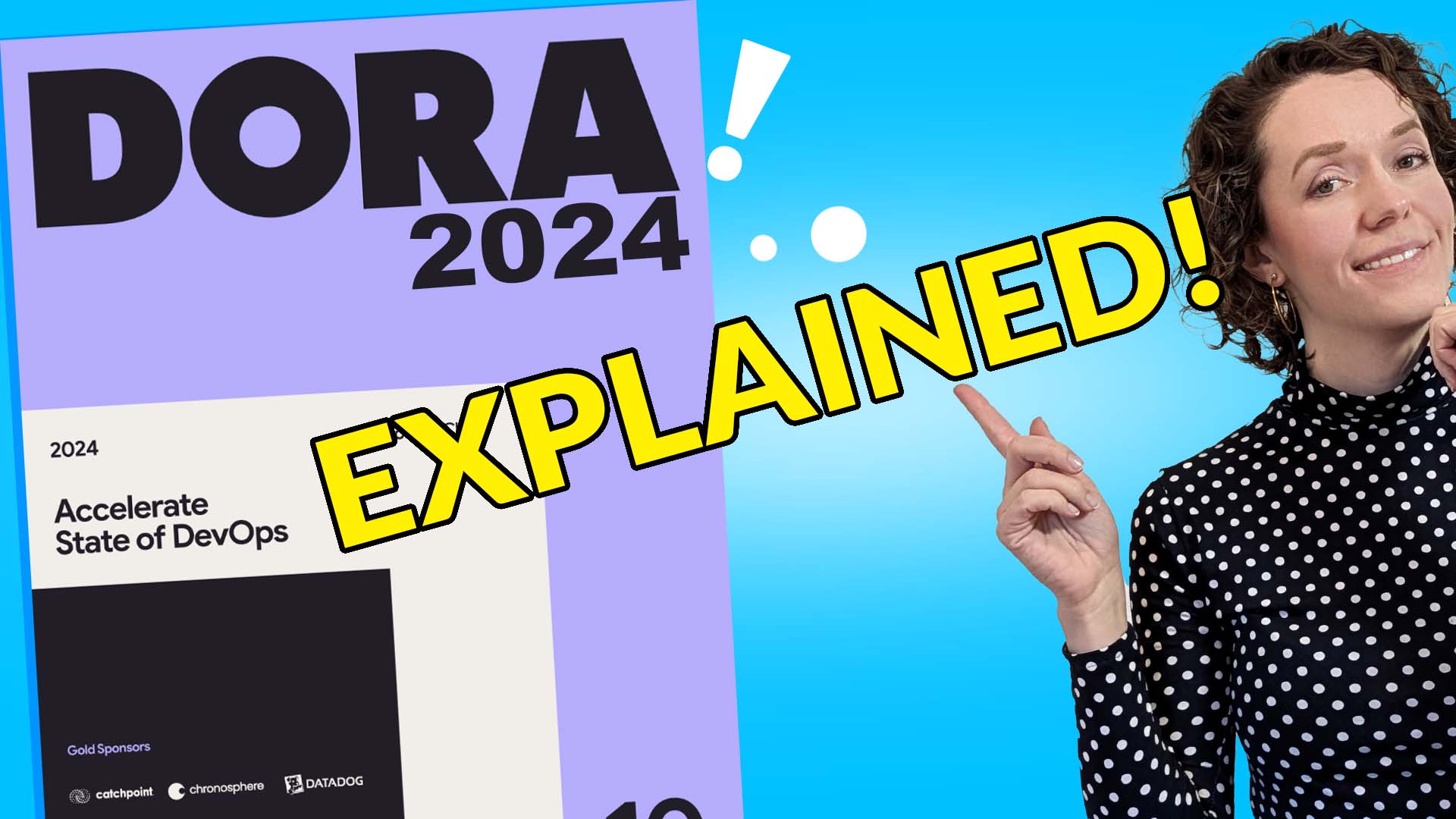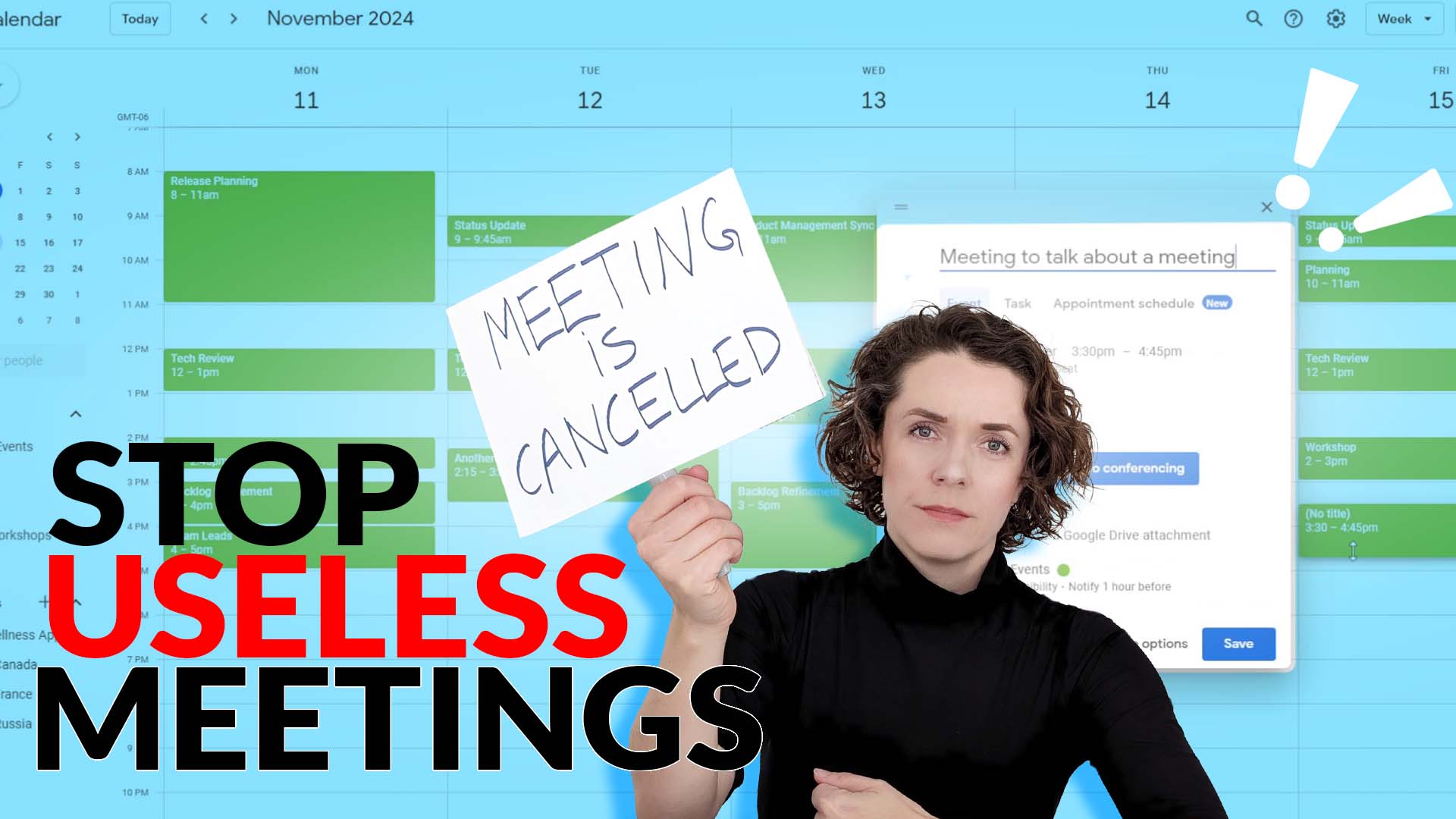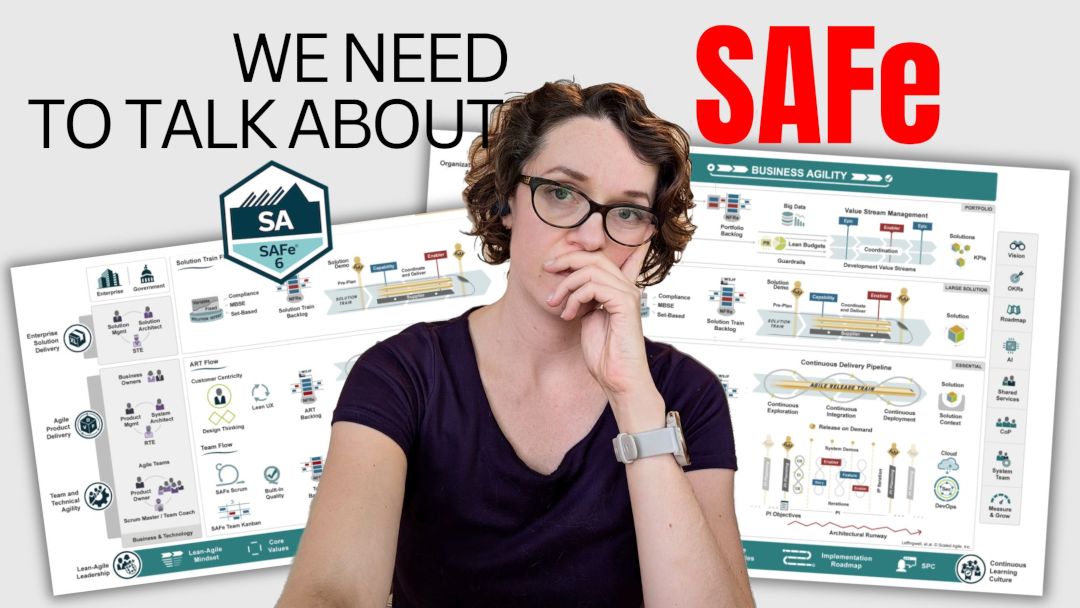Scrum Masters are accountable for establishing Scrum in the organization and the effectiveness of the Scrum Team.
How do we test that you are up for the job?
There are a few common interview questions that I like to ask when I’m recruiting for the Scrum Master job and I’d like the share those with you.
For potential candidates – this can remove some of the stress during preparation for your upcoming interview.
And for recruiters – this can help you find the right candidate that will bring the best results for your teams.
In this video I’d like to share some common Scrum Master interview questions with you.
I have an older video called “How to interview Scrum Masters” where I share some insights into the interview process as well more from the point of view of a recruiter.
Here, I’d like to focus more on the candidate side of things.
Now, and important disclaimer – there isn’t really one way to answers those questions and I won’t be giving you a script to learn by heart.
Really it’s to give you a more structured approach for preparing for the interview AND the job.
Which you won’t be able to do if you don’t know the Scrum Master role and Scrum at all.
If you need guidance, with exact action plans from day one on the job, check out my Scrum Master Startup Guide for in-depth explanation of daily activities, goals, and templates you can use right away.
Before we jump into the actual questions, let’s talk about some overall knowledge, skills and traits we are looking for in the Scrum Master interview.
Watch the video or keep reading…
Knowledge, skills, and traits
Since the Scrum Master is accountable for establishing Scrum in the organization, of course, the knowledge of Scrum is essential.
Just having a certificate or having attended a class is not enough, obviously.
It’s more about how well you understand the framework and its application in real life.
That will involve the understanding of every element of Scrum, every role, event, and artifact.
Then, since you will be working with teams, it’s important that you have good communication and people skills.
It may relate to being able to resolve conflict, present and negotiate, influence others, and more.
Often, I also like to check the knowledge and understanding of popular Agile practices to see if the person will be able to pick up the team’s current implementation as is and gradually make improvements.
And then, of course, depending on what the organization and team needs right now, there might be some other important elements to verify.
For example, if I’m hiring someone who will need to work alone on a larger organizational transformation. I’d be asking questions related to executive coaching, stakeholder management, larger scale training experience, and more importantly, ability to work independently without guidance.
Or if I have specific challenges in the team, I might be looking for someone who has experience with similar situations.
Ok, that’s a brief overview of skills and knowledge I would be looking for in a potential candidate. Now let’s jump in the exact interview questions.
I’ll review five popular ones and give you a general idea of how you’d want to approach answering them.
What is Agile? What is Scrum?
I’d say that’s an obvious one.
Yes, I usually would check for a certification on the resume if the person doesn’t have Scrum Master experience.
But even if they do either or even both, I would want to check how well they actually know Scrum and their role.
For example, a popular question would be something along the lines of “Could you describe Scrum to me briefly in a couple of minutes?”.
This is a very important question that you should be able to answer without a second thought.
This is where you can show your ability to teach as well as your knowledge of Scrum.
I would recommend preparing a short explanation that you can learn by heart, kind of an elevator pitch.
That way you won’t be caught off guard by this question.
Check my video where I explain Scrum in 5 minutes to get started with your elevator pitch.
Why should companies implement Agile? What’s the point?
This is kind of an add-on to the previous question.
When I ask this question I’m trying to see the overall understanding of Agile values and principles.
Do you know why companies implement Agile? Does Agile apply to every business? What challenges Agile helps overcome? Are there any drawbacks to implementing Agile?
If you aren’t sure how to answer these questions, you need to do some studying.
And it’s not just about surface-level understanding, but about the practical view on Agile values and principles.
Because, in the end, the Scrum Master needs to teach others how to become more effective using the Scrum framework, not just implement the process.
Think of concepts like customer value, adaptability, collaboration, and more.
I talked a bit about this in my video “Are Agile and Scrum the same thing?”
If you’d like to have an expert understanding of Agile and learn how to implement these principles in practice, check out my online course Fundamentals of Agile.
It contains over 5 hours of video and over 170 pages of actionable worksheets designed to help you build the knowledge and confidence you need to coach others.
What do you like and dislike about the role of a Scrum Master?
I use this question for two primary reasons.
First, it allows me to assess the person’s knowledge and understanding of the role.
If they talk about the work they love that is fully aligned with the role – I know they understand it really well.
But if they are sharing something that technically Scrum Master shouldn’t be focusing on unless absolutely necessary, I will be concerned.
Especially, if they talk about something they love to do that is not part of the role, it means they will have a tendency to go towards it which will inevitably reduce the time and effort they spend on what’s truly important for Scrum Masters.
Second, it shows the person’s strengths and weaknesses.
Let’s be honest, we are usually good at what we love, and not as good at what we dislike.
That way I can see where this person might need some training and coaching and whether it is aligned with the needs of the team.
What are the common challenges that you have seen when a company is going through an Agile transformation?
That’s a great question and I absolutely love it.
This question is a way to gauge how well the person is familiar with Agile and Scrum and what kind of challenges they have seen previously. It’s also an opportunity to ask how they address these challenges.
However, even if the person doesn’t have a lot of experience, they should be able to recognize some of the most common issues they will most likely be facing since change management is a big part of the Scrum Master role.
Another important detail that I would pay attention to is how they talk about the challenges. Are they looking for someone to blame? Or are they talking about collaboration, patience, and coaching?
Check the Agile Audit podcast for examples and real-life stories from Scrum Masters around the world.

Bundle: Getting Started as a Scrum Master Must-Haves
This bundle combines a small set of tools to introduce you to the fundamental concepts and give you a starting point for the Scrum Master role.
Scenario-based questions
This is a big set of questions, rather then a single question. And, honestly, usually scenarios take the most time in a Scrum Master interview.
The exact questions will depend on the organization and the team and will usually be related to the practices and tools they are using as well as the typical challenges they face.
For example, once I was looking for a Scrum Master for a team of highly opinionated and very direct people. I myself appreciated this a lot and I knew how to deal with it.
But at the same time, I knew that some people might have trouble working with people like that, so I would ask questions like:
- What is your experience working with very opinionated people with strong personalities?
- Let’s imagine there is a conflict between a Senior Developer and a VP of Sales that is unfolding in a Product Planning meeting. How do you facilitate the discussion?
Other examples of scenario-based questions are:
- Your team has been delivering 13 story points exactly for the past several sprints. What are your thoughts on this?
- How would you facilitate a retrospective in a team after a particularly difficult sprint?
- The Product Owner has trouble keeping up with the Product Backlog. It’s often empty, and it takes a long time to get new tasks from the Product Owner when needed. What do you do?
These are just a few examples. Watch my video on scenario-based questions in Scrum Master’ interviews to learn some questions and answers.
And I know you most likely want me to give you answers to these questions.
But here’s the thing – there is no right answer! There might be some very-very wrong answers that go against Agile values and principles…
But when I ask those questions I’m not expecting something particular.
I just want to see how the person thinks, their past experiences dealing with similar situations, and how they can draw from other experiences to approach the scenario if they have never lived it themselves.
Your questions
Ok, we’ve covered some important questions you might be asked during the interview.
It’s not only about the questions the employer has for you, but also you should have for your potential employer.
I would be a bit suspicious if the candidate doesn’t have any questions as an interviewer.
But it’s also a very important part for you because this is how you can assess whether the company is the right fit for you. At least at a very minimum level.
Think of questions that might help you understand the situation and the challenges the team experiences, as well as the management view on it.
For example, how many teams are they expecting you to support? Do they have a dedicated Product Owner? What are the common issues and challenges that the management sees? Or what is the biggest pain point they would like to get resolved asap?
If you didn’t get a good introduction of the team, ask to give you a quick lay of the land at least.
And while you’re listening to that overview, some new questions may pop up into your head where you’d want to get some clarifications.
Share in the comments below what you like and dislike about the role.
It can give you clarity on why you should (or maybe shouldn’t) be a Scrum Master.
And I’m always interested in hearing your thoughts.



